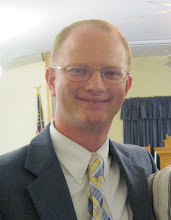
The Cambodian Christians who were slaughtered during the Killing Fields over three decades ago were truly a perfect picture of true commitment to Christ; and, like those martyrs mentioned in Hebrews 11, the world was not worthy of them. And yet, their stories are seldom told in most churches and Christian circles today. The following is an excerpt from the gem of a book,
Killing Fields Living Fields by Don Cormack. This is the account of a bold Christian named Haim, who, with his wife and children, would be martyred for their unrelenting faith in Jesus Christ.
Haim's entire family was rounded up that afternoon. They were "the old dandruff", "bad
blood", "enemies of the glorious revolution", "CIA agents". They were Christians.
The family spent a sleepless night comforting one another and praying for each other
as they lay bound together in the dewy grass beneath a stand of friendly trees. Next
morning the teenage soldiers returned and led them from their Gethsemane to their
place of execution, to the nearby viel somlap, "the killing fields".
The place was grim indeed and bore many gruesome signs of a place of execution. A
sickly smell of death hung in the air. Curious villagers foraging in the scrub nearby
lingered, half hidden, watching the familiar routine as the family were ordered to dig
a large grave for themselves. Then, consenting to Haim's request for a moment to
prepare themselves for death, father, mother, and children, hands linked, knelt together
around the gaping pit. With loud cries to God, Haim began exhorting both the Khmer
Rouge and all those looking on from afar to repent and believe the gospel.
Then, in a panic, one of Haim's young sons leapt to his feet, bolted into the surrounding
bush and disappeared. Haim jumped up and with amazing coolness and authority
prevailed upon the Khmer Rouge not to pursue the lad, but allow him to call back the
boy. The knots of onlookers, peering around trees, the Khmer Rouge, and the stunned
family still kneeling at the graveside, looked on in awe as Haim began calling to his son,
pleading with him to return and die together with his family.
"What comparison, my son," he called out, "stealing a few more days of life in the
wilderness, a fugitive, wretched and alone, to joining your family here momentarily
around this grave but soon around the throne of God, free forever in Paradise?" After
a few tense moments the bushes parted, and the lad, weeping, walked slowly back to his
place with the kneeling family. "Now we are ready to go," Haim told the Khmer Rouge.
But by this time there was not a soldier standing there who had the heart to raise his
hoe to deliver the death blow on the backs of these noble heads. Ultimately this had to
be done by the Khmer Rouge commune chief, who had not witnessed these things. But
few of those watching doubted that as each of these Christians' bodies toppled silently
into the earthen pit which the victims themselves had prepared, their souls soared
heavenward to a place prepared by their Lord.





.jpg)

